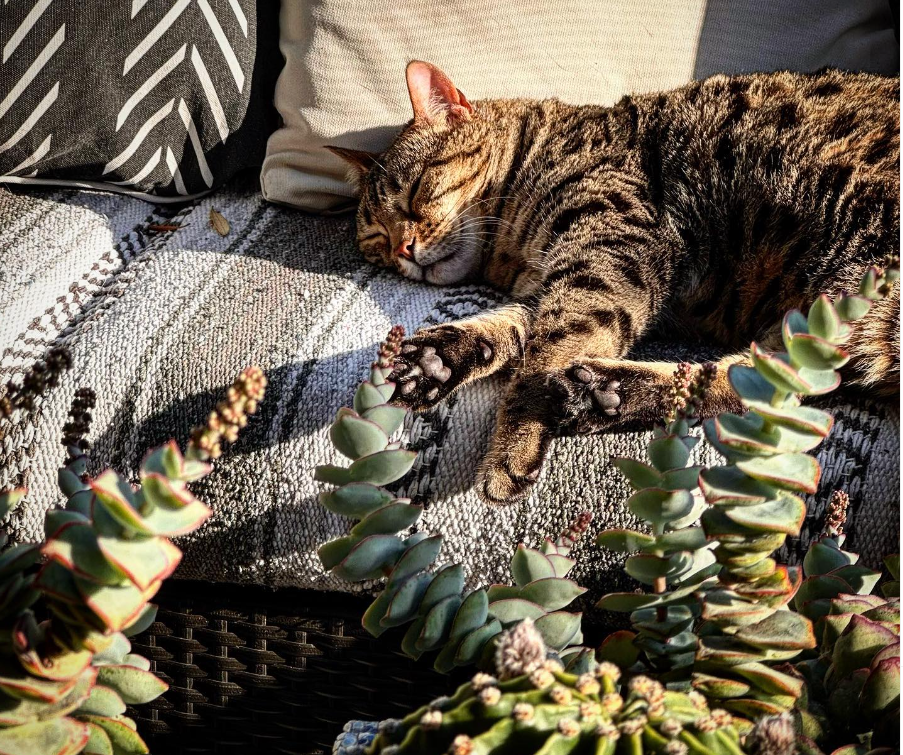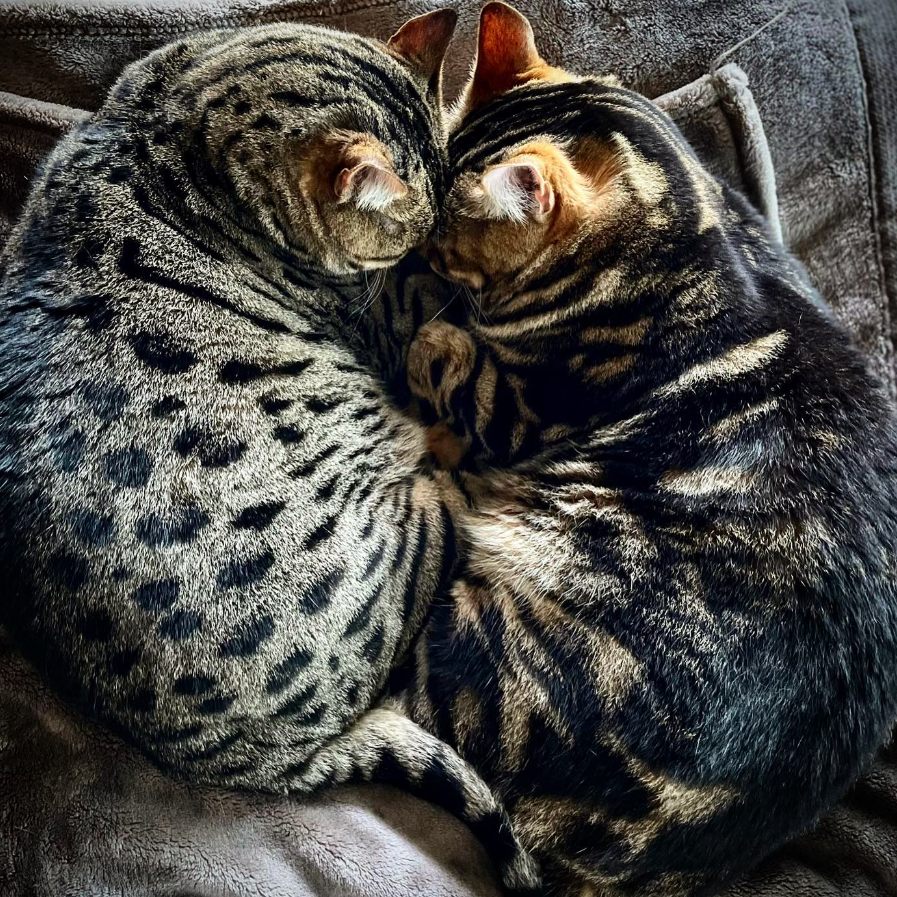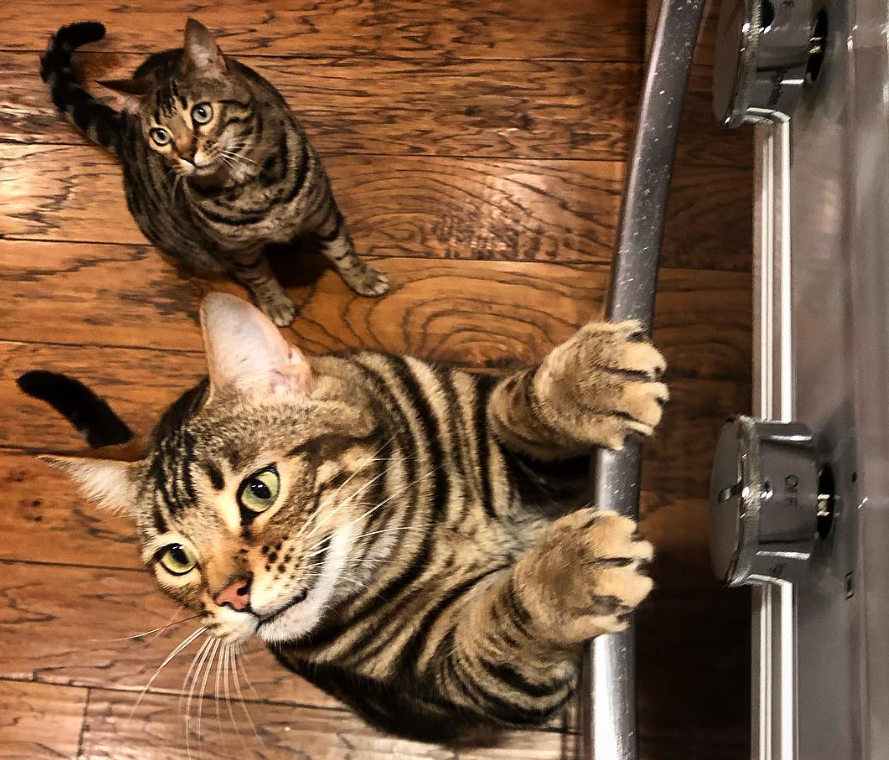While Bengal cats are known to be active and playful, they also need plenty of rest. Bengal cats sleep around 12-16 hours per day but the actual amount of sleep depends on the individual cat, as well as their age.
Younger and older Bengal cats tend to sleep more than middle-aged cats.
Understanding Their Sleeping Patterns

Just like other domestic cats, this particular breed has unique sleeping habits that are influenced by various factors.
In this section, I will discuss the physiological, behavioral, environmental, and health factors that affect Bengal cat sleep patterns.
Physiological Factors Affecting Sleep
Bengal cats, just like other cats, have different sleep stages, including deep sleep and REM sleep.
During deep sleep, Bengal cats are less responsive to external stimuli, while during REM sleep, they may twitch their whiskers or paws as if they are dreaming.
The sleep cycle of a cat is shorter than that of a human, and they tend to wake up more frequently during the night. Age, weight, and health can also affect a Bengal cat’s sleep patterns.
Behavioral Aspects
Bengal cats are energetic and playful animals that require attention and stimulation during the day.
A lack of playtime and exercise can lead to lethargy and a decrease in energy levels, which may affect their sleep patterns.
Bengal cats are crepuscular, which means they are most active during dawn and dusk. Therefore, they may need a routine playtime before bedtime to help them wind down.
Environmental Influences on Sleep Duration

A comfortable sleeping area is crucial for a Bengal cat’s sleep quality. Cats prefer warm, cozy, and quiet places to sleep.
They may also need toys or interactive toys, such as cat trees, to keep them stimulated during the day. The temperature of the environment can also affect their sleep patterns. A room that is too hot or too cold may cause discomfort and disrupt their sleep.
For example, one of my cats prefers the cooler rooms to sleep in while the other one prefers the warmer rooms!
Health and Nutrition’s Role in Sleep
Bengal cats need a balanced diet and access to clean water to maintain good health.
Health issues such as hyperthyroidism or hypertrophic cardiomyopathy, may affect their sleep patterns. Symptoms of illness or pain may also cause a Bengal cat to have disrupted sleep.
Owners can help their Bengal cats get good quality sleep by providing a comfortable sleeping area, routine playtime, a balanced diet, and access to clean water. If you notice any changes in your Bengal cat’s sleeping habits or other behaviors, it is essential to take them to the vet for a check-up.
At What Age Do Bengal Cats Start to Sleep Less?

As Bengal cats age, they tend to sleep less. Kittens and young cats require more sleep than adult cats. These kittens can sleep up to 20 hours a day, while adult cats sleep around 12 to 16 hours a day.
Bengal cats typically reach adulthood at around one year of age. At this point, they start to become more active and require less sleep.
Is it normal for Bengal cats to sleep more than other breeds?
Yes, it is normal for Bengal cats to sleep more than other breeds.
Bengal cats are known to be more energetic and athletic than other breeds, which means they require more rest to recharge. They are also known to be highly intelligent and curious, which can lead to mental exhaustion, causing them to sleep more.
In addition to their active lifestyles, Bengal cats are also known to be prone to certain health issues that can cause them to sleep more.
